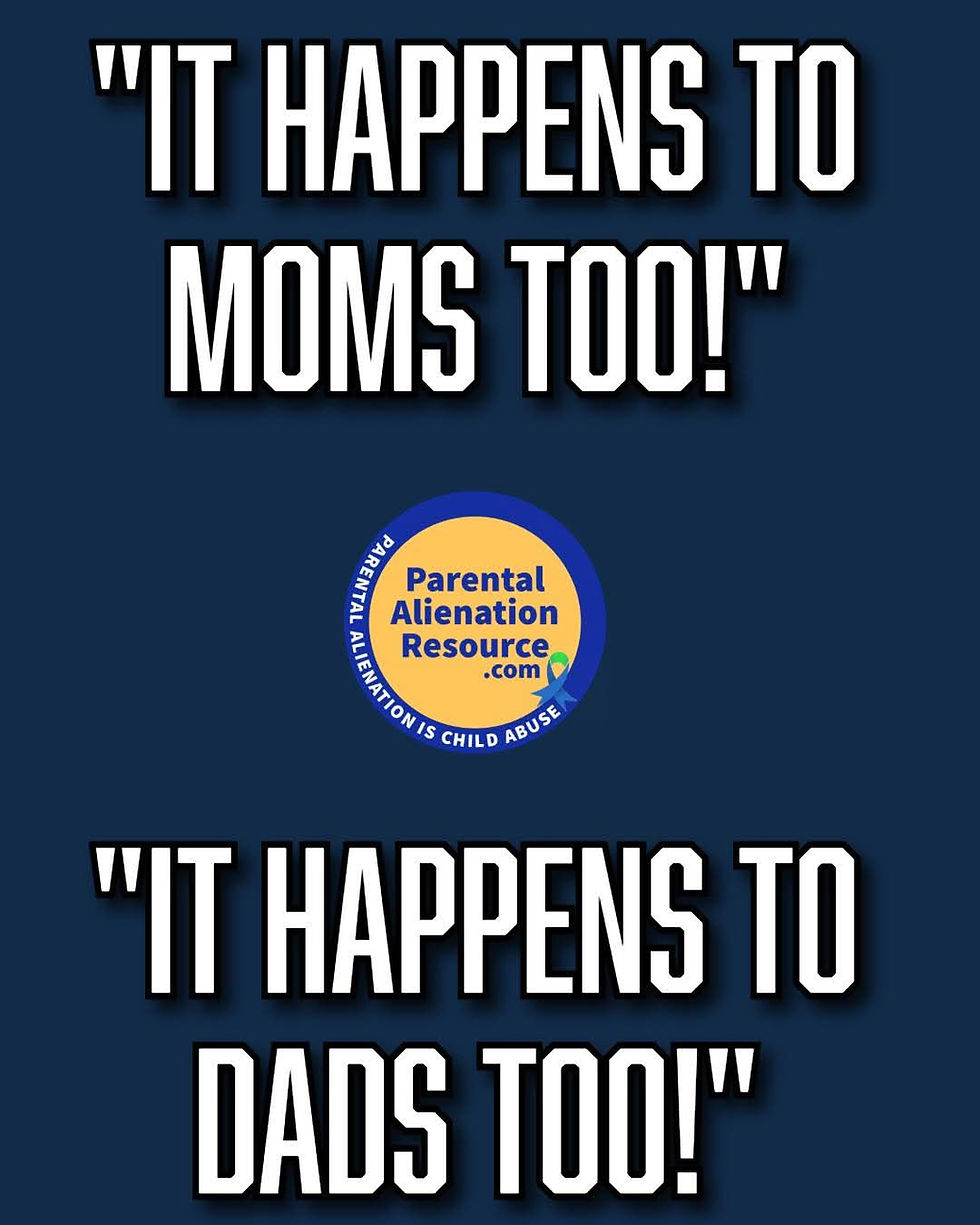The Narcissistic Parent's Manipulative Web: How They Use Children's Friendships to Alienate
- Parental Alienation Resource

- Feb 27, 2024
- 2 min read

Navigating the complexities of parental relationships can be challenging for any child, but when a parent exhibits narcissistic traits, the situation can become even more tangled and emotionally fraught.
One common tactic used by narcissistic parents to exert control and manipulate their children is through the exploitation of their friendships and the relationships with their friends' parents. By leveraging these connections, narcissistic parents seek to alienate their child from the other parent, creating a toxic environment of division and manipulation.
Narcissistic parents often view their child's friendships as an extension of their own social circle, seeing an opportunity to influence and control not only their child but also their child's friends and their parents. They may strategically insert themselves into the dynamics of these relationships, using charm, manipulation, and misinformation to sway opinions and foster allegiance.
One way a narcissistic parent may attempt to alienate their child from the other parent is by disparaging them to their child's friends and their parents. Through subtle comments, insinuations, or outright lies, they seek to poison the well and plant seeds of doubt about the other parent's character and intentions. This calculated smear campaign can create a rift between the child and the other parent, as well as between the child's friends and their parents, fostering a sense of isolation and distrust.
Another insidious strategy employed by narcissistic parents is to try to recruit the child's friends and their parents as allies in their quest to discredit and undermine the other parent. By enlisting the support of third parties, they hope to bolster their own position, painting themselves as the victim and the other parent as the villain. This triangulation of relationships further complicates the child's emotional landscape, pitting friend against friend, parent against parent, and sowing discord and confusion in its wake.
To protect against the manipulative tactics of a narcissistic parent, it is crucial for children, friends, and parents alike to maintain open lines of communication, validate each other's experiences, and approach any negative or inflammatory information with a healthy dose of skepticism.
By fostering a supportive and understanding network of relationships, built on trust and transparency, we can help shield children from the toxic influences of narcissistic behavior and promote healthier, more authentic connections based on mutual respect and empathy.









Comments